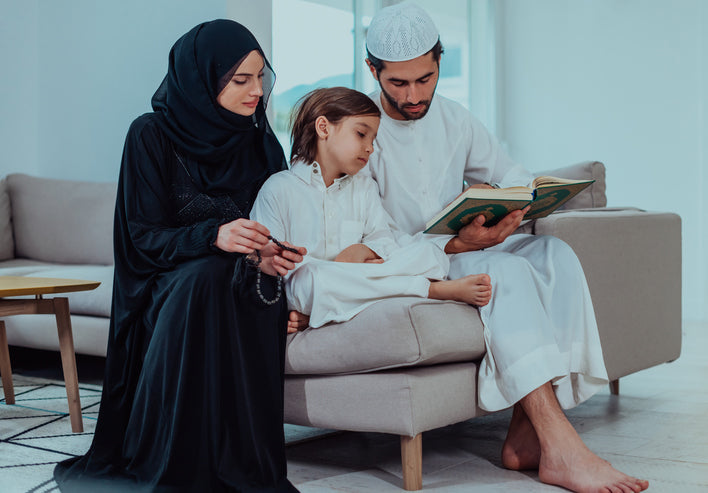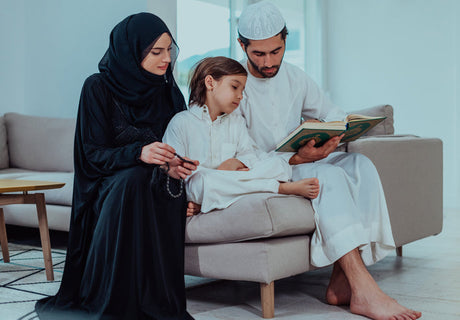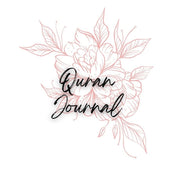Key Takeaways
-
Balanced Leadership: The Quran establishes husbands as maintainers (qawwamun), granting responsibility that demands justice and compassion—not control or superiority—as demonstrated through Prophet Muhammad's ﷺ own marriage example.
-
Intentional Kindness: Marriage in Islam requires active choice to practice kindness (ma'ruf) during both ease and difficulty, which can be reinforced through integrating meaningful Islamic reminders into the daily environment.
-
Spiritual Partnership: The ultimate goal of marriage in the Quran is sakinah (tranquility)—a spiritual sanctuary where both partners find peace, growth, and mutual support in faith practice amid Singapore's busy lifestyle.
In the Quran (Surah Ar-Rum 30:21), Allah describes the marriage bond as one where He "created for you from yourselves mates that you may find tranquility in them, and He placed between you affection and mercy." This beautiful verse captures the essence of Islamic marriage—not merely a social contract, but a divine blessing intended to nurture peace and compassion.
At AlHiqma, serving Singapore's Muslim community since 2018, we understand how valuable teachings from the Quran can be for husbands seeking guidance in marriage. This comprehensive guide explores these teachings with cultural relevance for Southeast Asian Muslim families navigating modern married life.
The Husband's Sacred Responsibilities in the Quran
Kindness as Foundation
"And live with them in kindness. For if you dislike them – perhaps you dislike a thing and Allah makes therein much good."
— Surah An-Nisa (4:19)
The Arabic word used here—ma'ruf—goes beyond simple "kindness." It encompasses what is known to be good, honorable, and recognized by society as excellence in character. This verse directly instructs husbands to maintain kindness even when natural feelings of displeasure arise.
This verse reminds us that within marriage challenges lies hidden blessings. Maintaining patience and kindness during difficult moments often leads to personal growth and deeper connection.
Leadership with Service
"Men are the protectors and maintainers (qawwamun) of women..."
— Surah An-Nisa (4:34)
This verse has sometimes been misinterpreted to justify control. However, respected scholars explain that qawwamun carries connotations of "standing for" others—providing, protecting, and maintaining family welfare.
AlHiqma's 549-Tag System organizes verses into meaningful categories covering 398 Ayats, 30 Juz, and 114 Surahs across 7 subjects. This comprehensive system helps readers understand the context and interconnection between different teachings from the Quran.
The husband's leadership position carries greater accountability before Allah—not greater privilege or power.
Mutual Rights and Respect
"And they [wives] have rights similar to those [of men] in kindness, but men have a degree [of responsibility] over them."
— Surah Al-Baqarah (2:228)
This verse establishes a revolutionary principle of mutual rights. Marriage in Islam is not one-sided; it establishes reciprocal obligations between spouses.
The "degree" mentioned refers to additional responsibilities placed on husbands, including financial provision and physical protection. It does not imply moral superiority or diminish a wife's autonomy, dignity, or spiritual equality.
This verse established rights for women in 7th century Arabia that were unprecedented—and remains relevant for husbands today seeking to balance traditional values with contemporary realities.
Marriage as a Source of Peace
"He created for you from yourselves mates that you may find tranquility in them, and He placed between you affection and mercy."
— Surah Ar-Rum (30:21)
The concept of sakinah (tranquility) mentioned here refers to a profound sense of peace that comes from complete compatibility and harmony. This is particularly meaningful in our fast-paced society where stress can easily enter the home.
Creating a dedicated prayer space at home can serve as a physical reminder of spiritual connection and help maintain this sense of tranquility when work pressures mount.
Reconciliation with Wisdom
"If you fear dissension between the two, send an arbitrator from his people and an arbitrator from her people. If they both desire reconciliation, Allah will cause it between them."
— Surah An-Nisa (4:35)
This verse offers practical guidance for conflict resolution, establishing a balanced approach that honors both families' perspectives. Islam acknowledges marriage challenges but provides solutions grounded in fairness and community wisdom.
This approach helps navigate cultural expectations in Malay-Singaporean extended families where tensions between in-laws can affect young couples.
Practical Applications for Modern Muslim Husbands
For Working Professionals in Singapore
The demanding pace of Singaporean professional life creates unique challenges for Muslim husbands. Consider these practical applications:
-
Morning Connection Ritual: Before checking emails, spend 5 minutes reading one verse on marriage with your wife. This small practice can create significant spiritual alignment throughout the day.
-
Intentional Listening: When your wife shares concerns, practice active listening without immediately offering solutions—a practice modeled by Prophet Muhammad ﷺ who gave his full attention to his wives.
-
Digital Boundaries: Create technology-free times at home where you're fully present with your family, reinforcing the sakinah (tranquility) mentioned in Surah Ar-Rum.
For New Fathers Balancing Responsibilities
Becoming a father transforms a man's experience as a husband. The Prophet Muhammad ﷺ demonstrated that responsible fatherhood enhances, rather than diminishes, attention to one's wife:
-
Shared Spiritual Teaching: Incorporate teachings from the Quran with both your child and wife, creating three-way connection through faith.
-
Honor Her Motherhood: Explicitly acknowledge your wife's maternal efforts as spiritual acts, not just practical tasks. The Prophet ﷺ specifically praised his wives' maternal qualities.
-
Create Respite Time: Regularly take full responsibility for childcare to allow your wife dedicated self-restoration time—a practical application of the Islamic concept of ihsan (excellence).
For Multicultural Marriages
With Singapore's diverse Muslim community, cross-cultural marriages bring unique considerations:
-
Cultural Appreciation: Learn specific cultural expressions of respect important to your wife's background, whether Malay, Indonesian, Pakistani, or otherwise.
-
Community Integration: Introduce your wife meaningfully to your cultural community, standing as her advocate and protector as instructed in the Quran.
-
Unified Religious Practice: Find balanced approaches to differing cultural religious practices by focusing on core principles from the Quran that transcend cultural variations.
Frequently Asked Questions
Q: Does being a "qawwam" mean a husband can make all decisions?
A: No. While the husband has leadership responsibility, the Prophet Muhammad ﷺ modeled consultation (shura) with his wives on family matters. True leadership involves mutual consultation, respect for expertise, and prioritizing family welfare over ego.
Q: How can husbands balance work demands with family presence?
A: The Prophet ﷺ said, "The best of you are those who are best to their families" (Tirmidhi). This means prioritizing quality connection, setting clear work boundaries, and ensuring spiritual leadership at home takes precedence over career advancement when they conflict.
Q: What if a husband struggles with anger management?
A: The Prophet ﷺ advised, "If you get angry, sit down; if you're still angry, lie down" (Abu Dawud). Practical steps include developing self-awareness triggers, removing yourself temporarily, and seeking professional help if needed—all expressions of the virtue of hilm (forbearance).
Q: How should husbands respond when their wives are emotionally distressed?
A: Follow the Prophetic example of providing both emotional comfort and practical support. When his wife Aisha was upset, he would listen attentively and validate her feelings before offering perspective—demonstrating the quality of rahma (mercy).
Q: What if cultural expectations of husband roles conflict with Islamic teachings?
A: Always prioritize principles from the Quran and the authenticated Sunnah over cultural practices. However, approach any needed cultural corrections with wisdom and gradual education rather than harsh criticism or abrupt changes.
About the Author
This article was written by Sheela M. Ahmed, a content editor and Islamic lifestyle writer at AlHiqma, blending traditional teachings with contemporary Muslim experiences. Her articles are grounded in values from the Quran and real-life applications.
Your Journey to Better Marriage
Transform your understanding of Islamic marriage with AlHiqma's exclusive Tagging System. Our comprehensive system covers 549 Tags spanning 398 Ayats, 30 Juz, and 114 Surahs across 7 subjects.












